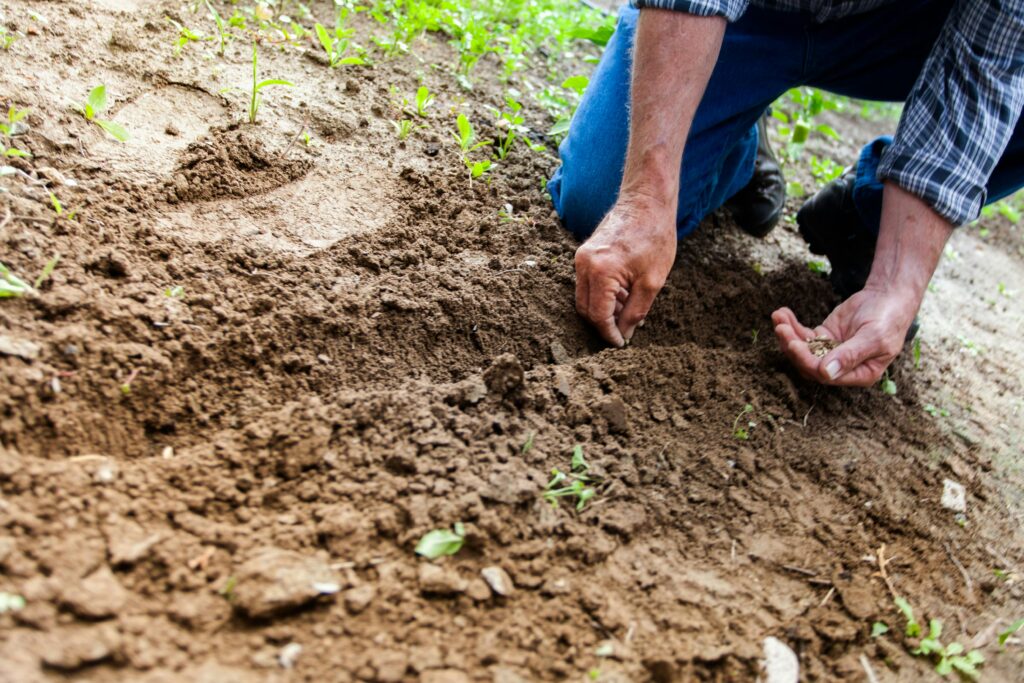We live in an era where people from every background—regardless of age or education—are venturing into agribusiness. Whether you’re dreaming of escaping city life or starting a small farm, success in agribusiness begins with understanding the fundamentals of farming and making informed decisions. In this comprehensive guide to agribusiness success, we’ll walk you through essential farming tips for beginners, explore the economic and logistical considerations of starting an agribusiness, and highlight how natural oils can enhance both your culinary creations and your wellness routines.
1. Starting Your Agribusiness Journey
What Does a Farmer Do?
In the realm of this business, a farmer is anyone who earns income by working in the primary sector—raising living organisms for food or raw materials. While traditional agribusiness envisions farmers as individuals deeply connected with nature, modern agribusiness can also include greenhouse operations managed indoors with advanced technology. Regardless of the method, agribusiness demands dedication, flexibility, and continuous learning from experience.
Essential Steps for Aspiring Agribusiness Owners
Step 1: Decide What to Grow and Where
The decision on which crop or livestock to pursue is one of the most critical choices for any agribusiness venture. Start by researching potential crops that match your local climate and soil conditions. For example, while vegetables can be harvested within 3-5 months, commodity crops may require longer cycles and higher capital investment.
- Match the Crop to the Market: Identify your target market, understand demand, and determine pricing strategies to maximize your agribusiness revenue.
- Choose the Right Field: Assess soil structure, pH, water availability, and local environmental conditions to ensure your business thrives.
Step 2: Secure Your Financing Options
In agribusiness, cash flow is crucial. Since income is typically realized only after the harvest, securing capital upfront is essential. Explore various agribusiness financing options, such as government loans, state bank schemes, and contract farming arrangements, to cover production costs and living expenses.
Step 3: Ensure Availability of Inputs and Resources
Planning is critical in agribusiness. Make sure you can source all necessary inputs—seeds, fertilizers, labor, and machinery—when needed. Confirm the availability of seasonal workers and factor in storage and transportation costs to support your agribusiness effectively.
Step 4: Organic vs. Conventional Farming
Decide whether your agribusiness will follow organic methods, which emphasize sustainability and quality, or conventional methods that may yield higher quantities. Each approach has unique benefits and challenges; your choice should align with your agribusiness goals and market demands.
Step 5: Evaluate Storage and Logistics
Proper storage is vital for any agribusiness. Determine whether to build your own facility or partner with wholesalers. Ensure storage areas maintain optimal conditions to preserve crop quality, and plan efficient transportation to protect your agribusiness products from spoilage.
Step 6: Do Your Research Constantly
In agribusiness, continuous learning is the key to success. Stay updated with new techniques, crop-specific advice, and market trends. Engage with local farmers, join agribusiness associations, and leverage advisory services from state authorities to refine your strategy.
Step 7: Understand Regulations and Compliance
Familiarize yourself with local and international regulations, including Good Agricultural Practices (GAP). Adhering to these standards in your agribusiness not only ensures safety but also opens up access to larger, more lucrative markets.
Step 8: Special Considerations for Livestock Farming
If your agribusiness includes livestock, additional factors like facility location, investment in infrastructure, and regulatory compliance become critical. Start small and scale your livestock agribusiness as you gain experience.
2. Enhancing Your Agribusiness with Natural Oils
Beyond the daily challenges of agribusiness, maintaining personal health and culinary quality is essential. Natural oils can add tremendous value to your agribusiness lifestyle. Consider these top choices:
Almond Oil: A Nutritious Elixir
Extracted from almonds, almond oil is celebrated for its high vitamin E, antioxidants, and essential fatty acids. This oil not only enhances the flavor of your recipes but also improves skin and hair health. In your agribusiness kitchen, using almond oil in salad dressings or as a finishing oil can boost nutritional value while supporting heart health.
Palm Oil: Versatility with Sustainability
Palm oil remains a key ingredient in many processed products and industrial applications. Its rich content of beta-carotene and vitamin E provides antioxidants, although its high saturated fat content calls for moderate use. For agribusiness owners mindful of sustainability, sourcing ethically produced palm oil is crucial to support both profit and environmental responsibility.
Mustard and Coconut Oils: Complementary Choices
For a diversified agribusiness approach, consider supplementing your pantry with mustard oil and coconut oil. Mustard oil offers robust flavor and potential anti-inflammatory benefits, while coconut oil is prized for its culinary versatility and natural moisturizing properties.
3. Final Thoughts on Agribusiness Success
Agribusiness is both an art and a science. By implementing these essential tips and embracing modern agribusiness practices, you can build a sustainable and profitable farm operation. Continuous research, informed decision-making, and strategic planning are the cornerstones of a successful agribusiness. Whether you’re focused on crop production or livestock management, integrating innovative solutions and natural oils into your routine will help you achieve your goals.
For more expert advice and high-quality agribusiness resources, explore our website and join our community of forward-thinking farmers. Embrace the challenges and opportunities of agribusiness, and transform your passion into a thriving, sustainable lifestyle.

